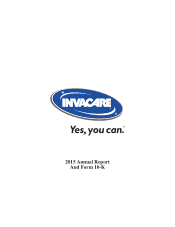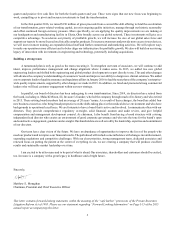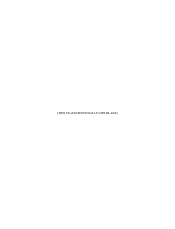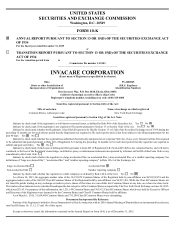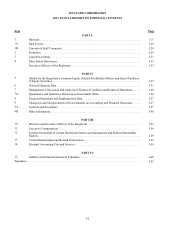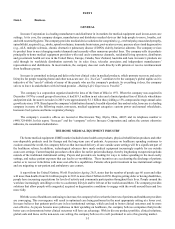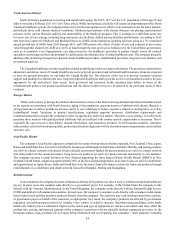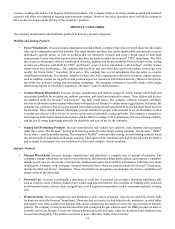Invacare 2015 Annual Report Download - page 9
Download and view the complete annual report
Please find page 9 of the 2015 Invacare annual report below. You can navigate through the pages in the report by either clicking on the pages listed below, or by using the keyword search tool below to find specific information within the annual report.I-3
PART I
Item 1. Business.
GENERAL
Invacare Corporation is a leading manufacturer and distributor in its markets for medical equipment used in non-acute care
settings. At its core, the company designs, manufactures and distributes medical devices that help people to move, breathe, rest
and with essential hygiene. The company provides medical device solutions for congenital (e.g., cerebral palsy, muscular dystrophy,
spina bifida), acquired (e.g., stroke, spinal cord injury, traumatic brain injury, post-acute recovery, pressure ulcers) and degenerative
(e.g., ALS, multiple sclerosis, chronic obstructive pulmonary disease (COPD), elderly, bariatric) ailments. The company revises
its product lines to meet changing market demands and currently offers numerous product lines. The company sells its products
principally to home medical equipment providers with retail and e-commerce channels, residential living operators, distributors
and government health services in the United States, Europe, Canada, New Zealand, Australia and Asia. Invacare’s products are
sold through its worldwide distribution network by its sales force, telesales associates and independent manufacturers’
representatives and distributors. In most markets, the company does not work directly with patients or receive reimbursement
from healthcare payors.
Invacare is committed to design and deliver the best clinical value in medical products, which promote recovery and active
lifestyles for people requiring home and other non-acute care. Yes, You Can.® continues to be the company's global tagline as it is
indicative of the "can do" attitude of many of the people who use the company's products. In everything it does, the company
strives to leave its stakeholders with its brand promise - Making Life's Experiences Possible™.
The company is a corporation organized under the laws of the State of Ohio in 1971. When the company was acquired in
December 1979 by a small group of investors, it had $19.5 million in net sales and a limited product line of lifestyle wheelchairs
and patient aids. Invacare's net sales in 2015 were approximately $1.1 billion thus yielding a 13% compound average annual sales
growth rate since 1979. Based upon the company’s distribution channels, breadth of product line and net sales, Invacare is a leading
company in many of the following major, non-acute, medical equipment categories: custom power and manual wheelchairs,
homecare bed systems and home respiratory therapy.
The company’s executive offices are located at One Invacare Way, Elyria, Ohio, 44035 and its telephone number is
(440) 329-6000. In this report, “Invacare” and the “company” refer to Invacare Corporation and, unless the context otherwise
indicates, its consolidated subsidiaries.
THE HOME MEDICAL EQUIPMENT INDUSTRY
The home medical equipment (HME) market includes home health care products, physical rehabilitation products and other
non-disposable products used for therapy and the long-term care of patients. As pressure on healthcare spending continues to
escalate around the world, the company believes that increased delivery of care outside acute settings will be a significant part of
the healthcare reform. In addition, technological advances have made medical equipment increasingly capable for use outside
acute care settings. Current hospital procedures often allow for earlier patient discharge, thereby lengthening recuperation periods
outside of the traditional institutional setting. Payors and providers are looking for ways to reduce spending in the most costly
settings, and reduce patient exposure that can lead to co-morbidities. These incentives are accelerating the discharge of patients
earlier or to recover in facilities with more cost-effective capabilities. Patients often prefer treatment in less institutional settings
and are migrating to out-patient and ambulatory care centers.
A report from the United Nations, World Population Ageing 2013, states that the number of people age 60 years and older
will more than double from 841 million people in 2013 to more than 2 billion in 2050. Despite getting older or having disabilities,
people have increasing expectations for levels of activity and community participation throughout their lives. People around the
world are increasingly unwilling to retire to a sedentary lifestyle and be left out of the world around them. The company provides
solutions that allow people with congenital, acquired or degenerative conditions to engage with the world around them and live
more fully.
With the costs of healthcare continuing to increase, the company believes that the interests of patients and healthcare providers
are converging. This convergence will result in optimized care being performed in the most appropriate setting at a lower cost.
Invacare believes that patients prefer care in less institutional settings, which can lead to better clinical outcomes and be more
cost-effective. As payors become more judicious in their spending on healthcare, the company believes companies that provide
better care or demonstrate better clinical outcomes will have an advantage. With its diverse product portfolio, clinical solutions,
global scale and focus on the non-acute care setting, the company believes it is well positioned to serve this growing market.

